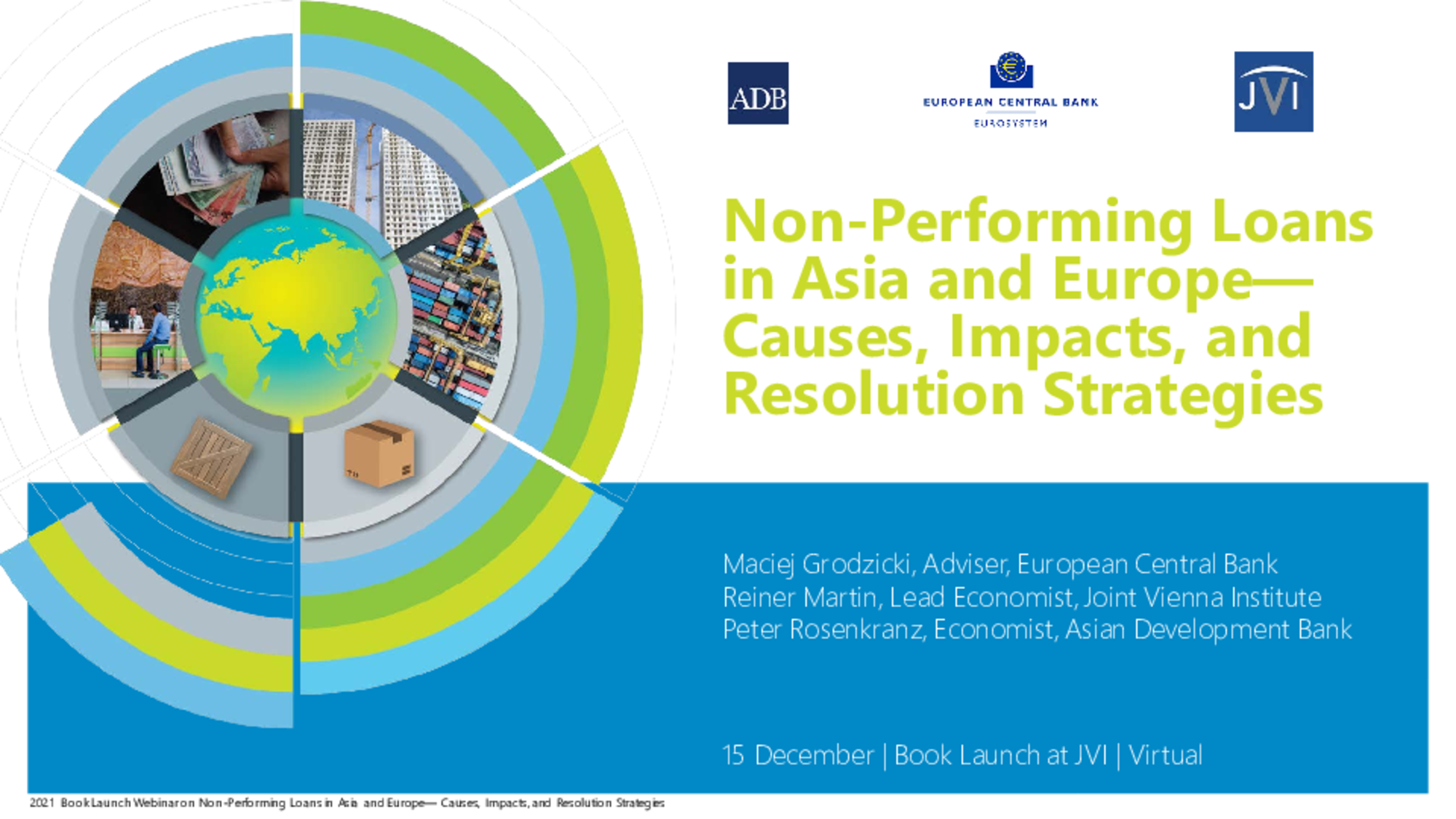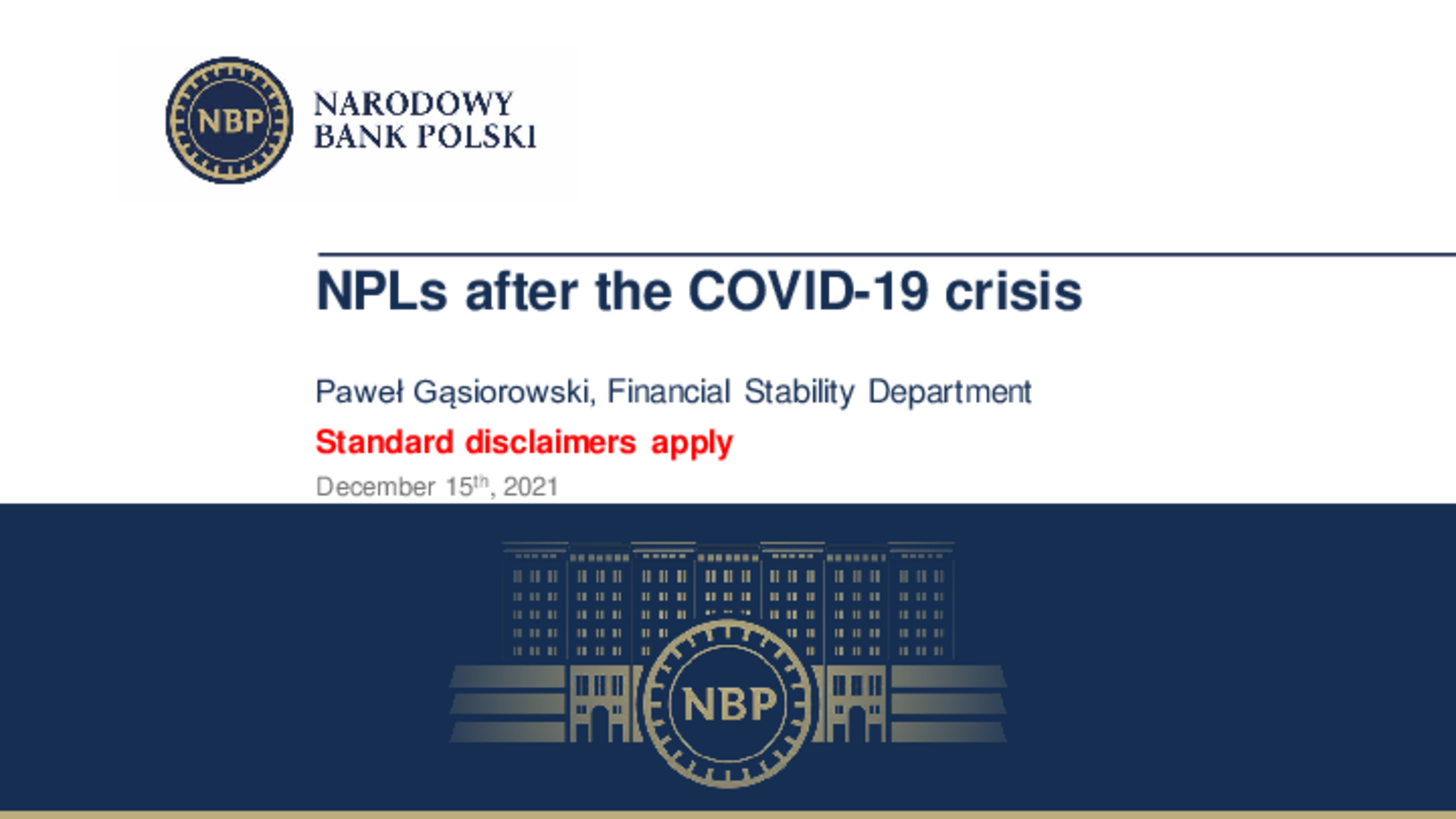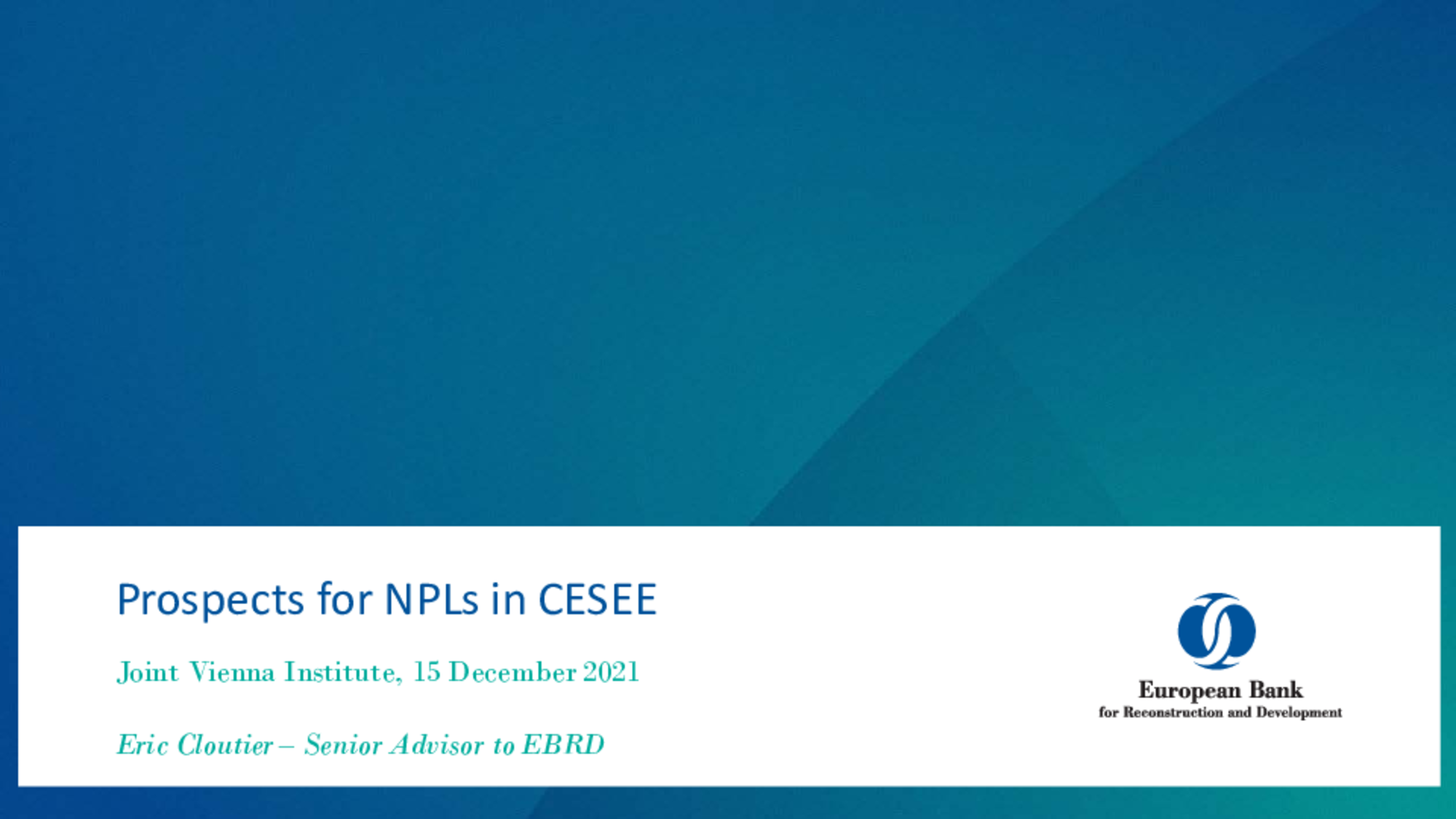The coronavirus (COVID-19) pandemic has weighed heavily on the global economy, triggering a worldwide recession in its wake. And while quick and forceful policy support has allayed the risk of financial crisis, the threat of a future elevation in nonperforming assets across Asia and Europe remains.
Against this backdrop, Mr. Peter Rosenkranz (ADB), Mr. Reiner Martin (JVI) and Mr. Maciej Grodzicki (ECB) presented key findings from the book “Nonperforming Loans in Asia and Europe — Causes, Impacts, and Resolution Strategies”, recently published by the Asian Development Bank, in cooperation with the European Central Bank (www.adb.org/publications/nonperforming-loans-asia-europe-causes-impacts).
Among the key findings of the book is the necessity of fostering an ecosystem conducive to NPL market development and resolution, including addressing data asymmetries, improving financial market infrastructure, and enhancing legal frameworks and judicial capacities. In addition, specific to NPL resolution options are discussed in some detail, including the possible role of Asset Management Companies, securitization schemes, or electronic NPL trading platforms. While highlighting the need for country-specific approaches, the book also stresses the beneficial role that regional cooperation can play in strengthening NPL resolution mechanisms.
The book presentation was followed by a panel discussion, looking in more detail at the prospects for NPLs evolution in Europe and the CESEE countries.
Ms. Piroska Nagy-Mohacsi (LSE), stressed that the COVID response has been unique and very successful in preventing a rise in NPLs. She emphasized that the COVID crisis has not started in the financial sector, that Europe was much better prepared than during previous crises and that Europe adopted a “whatever-it-takes” policy mix to tackle the economic impact of the crisis, including macroprudential/regulatory policies, the temporary suspension of EU fiscal, state aid and competition rules, and further quantitative easing by the ECB. The latter also supported countries in the neighborhood through currency swaps and repo operations.
On a more cautious note, Ms. Nagy-Mohacsi pointed out that the historically low NPL levels in Europe may be reversed as stimulus measures are scaled back and current risks such as asset price overvaluation and household indebtedness may materialize. Emerging markets are particularly vulnerable; they started raising interest rates, given the rapid rise of inflation and expectations of a faster QE wound-down in the US, possibly reversing capital inflows. To prevent a (delayed) surge in NPLs, Europe needs to take suitable policy measures, including a fast-track approach for government guarantees, steps to further strengthen secondary NPL markets and more flexible state aid rules, making AMCs more feasible again. In addition, an EU level AMC as well as “forward guidance” on macroprudential actions should be considered. For emerging Europe, the ECB’s currency swaps/repos should be retained to avoid possible market overreactions to the expected QE reversal.
Mr. Eric Cloutier (EBRD and KPMG) flagged that the CESEE region was burdened by a high level of NPLs stocks up to the peak of 2013, creating widespread systemic risks. Deeply embedded structural issues prevented NPLs resolution and sales. To coordinate and support the necessary reforms, the NPL Initiative was born in 2014 as a subset of the European Bank Coordination (Vienna) Initiative. Since then, sound NPL transactions and servicing markets emerged and NPL stocks more than halved in the region. However, the new challenge of the pandemic is testing the resilience of banks’ asset quality. Until now, emergency support measures have helped mitigate the impact of the crisis, but the fourth wave of infections brings with it a high level of uncertainty. Mr. Cloutier argued that the ability of banks to detect early signs of borrowers’ distress, and to act effectively on them, will be crucial in the coming years to minimise new accumulation of NPLs in the region.
Mr. Paweł Gąsiorowski (NBP) argued that it remains unclear whether the decrease in NPLs in Europe would be sustainable. First, the pandemic has not ended yet. Second, we may expect a rise in NPLs as public support measures to contain the negative consequences of COVID-19 fade. He pointed towards a rising share of Stage 2 loans, particularly those subject to moratoria or public guarantee schemes, as well as the rising amount of loans subject to forbearance. Also, the number of bankruptcies does not reflect the size of pandemic-related slowdown. He also mentioned that the comparability of expected credit loss among banks might be impaired. During the pandemic the share of weakly capitalized banks financing weaker firms increased. Even if the financial standing of these already weak firms deteriorates further in the future, the banks would likely continue to finance them to avoid recognizing the losses and may fall below the capital requirement. Mr. Gąsiorowski argued that in such a situation there is space for macro-prudential borrower-based measures aimed at ensuring prudent lending to the corporate sector. The aim of these measures could be to better ensure that banks finance corporations that can afford the repayment of debt. Commercial banks already use credit risk assessment ratios for household lending. Why should these ratios not be used to design borrower-based measures for NFC?
Reiner Martin, Lead Economist, JVI













